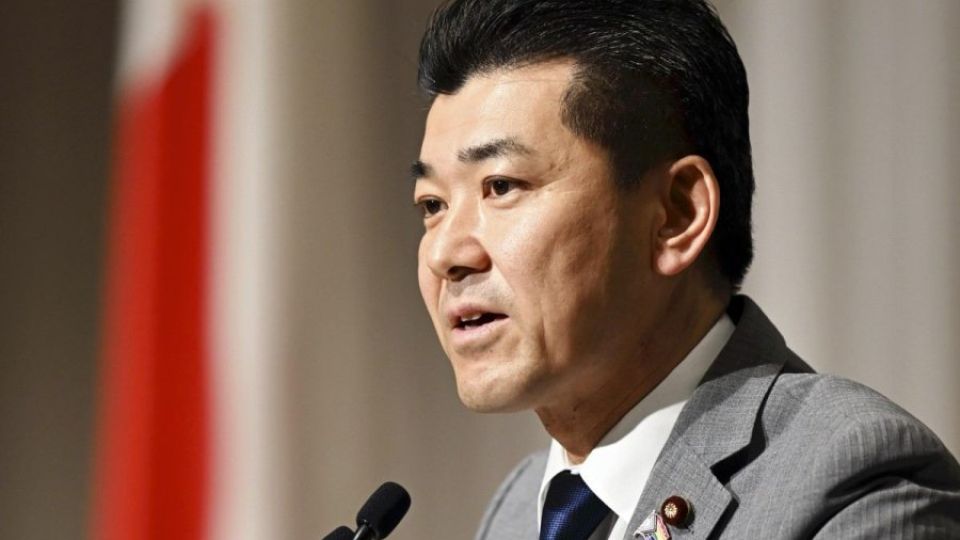February 21, 2023
TOKYO – The Constitutional Democratic Party of Japan has adopted an action plan that includes the strengthening of its united front with Nippon Ishin no Kai (Japan Innovation Party) in the Diet.
The CDPJ is looking to regain its momentum via cooperation with the second-largest opposition party. However, subtle policy differences have emerged between them, and the CDPJ is facing numerous issues, including how to adjust its party stance.
“The question is whether the two parties will work toward forming a government together, or limit the framework only to policy-based cooperation in the Diet. We’ll keep both options open,” said CDPJ President Kenta Izumi at a press conference following the CDPJ party convention on Sunday.
Adopted at the convention, the action plan describes the work realized by the united front — which was launched at last year’s extraordinary Diet session — as “a historical achievement in the Diet.” The parties’ joint efforts include launching talks between the ruling and opposition blocs to discuss the law to prevent the unlawful solicitation of donations.
“If we join forces, we can make the government move,” CDPJ Policy Research Committee Chairperson Akira Nagatsuma said.
However, the CDPJ failed to make positive gains in the House of Representatives election in 2021 and in last year’s House of Councillors election, in which it worked with the Japanese Communist Party to jointly back candidates. Under such circumstances, the party is now hoping to gain support among conservative voters, who largely support Ishin.
However, cooperation with Ishin is like a house of cards, as its positions on constitutional revision and other issues differ from those of the CDPJ.
In the ordinary Diet session, the CDPJ refused an early convening of the lower house’s Commission on the Constitution. This prompted complaints from Ishin, with Secretary General Fumitake Fujita saying, “Why don’t we just scrap this [cooperation]?”
Regarding the debate on constitutional revision, the CDPJ is reverting to its original approach of being in line with the JCP. Some within the CDPJ have called for cooperation with the JCP, mainly in urban areas, in the next lower house election.
“We should make the party’s policies more realistic and avoid laying out policies that couldn’t be realized if we take over the government,” said CDPJ Secretary General Katsuya Okada at the convention.
His remarks were made in light of the resistance of left-leaning CDPJ lawmakers to changes in the party’s line.
Okada has been aiming for a middle-of-the-road stance since last August, when he became secretary general, but wary left-leaning members have gone on the offensive regarding the compilation of foreign and security policy and the constitutional debate.
According a Yomiuri Shimbun survey conducted nationwide from Friday to Sunday, the CDPJ’s approval rating was 6%, hovering unchanged for the past six months.
“We won’t be able to achieve a change of government if the situation remains the same,” Okada has said.
If the party fails to produce results in the April unified local elections and lower house by-elections, party executives could be subject to increasing criticism.
Regarding the unified local elections, the action plan called for the party to “expand its strength and further consolidate its base in preparation for the lower house election,” but did not mention a specific number of seats to be targeted.
“If the party loses in the unified local elections and by-elections, we’ll have no choice but to ask for the resignation” of Izumi, a veteran lawmaker said.

